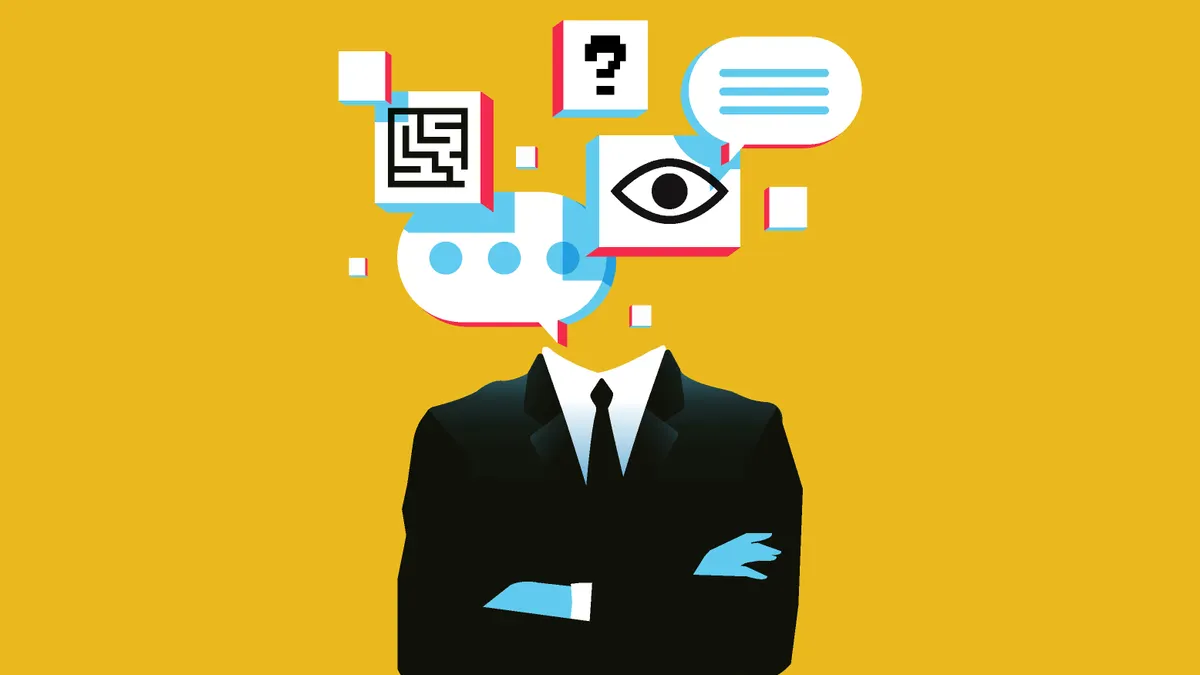Mental health has been top of mind for many workers in the pandemic, but do managers actually know how to foster those conversations? COVID-19 and the growing pains of remote work have lessened some of the stigma around workplace wellbeing. About two years after COVID's onset in the U.S., Willis Towers Watson reported that 86% of employers surveyed counted burnout, stress and mental health among their top priorities heading into 2022. But nearly half had yet to communicate plans in that vein to their employees.
By a 2021 Verizon Media account, 93% of employers in a survey agreed that mental health was hampering company-wide productivity; meanwhile, one-quarter to one-third of managers said they felt prepared to handle their employees' mental health needs. Eighty percent of managers expressed concern about using the wrong language regarding DEI issues, including mental health. Studies clearly indicate that while positive intentions around mental health are there, practical application skills are not.
"Often in workplaces, people feel very comfortable talking about their physical health, because we have a shared language around it." said Rachael Power, a manager at mental health advocacy organization Action Mental Health Works. For example, it's common to hear a colleague say, "Oh, I had a terrible cold last week." Further, she told HR Dive, workers feel comfortable talking about COVID-19 or even more serious conditions.
"But if I turned around and said, 'Oh, my anxiety is really bad at the moment,' people probably don't know what to say," Power said. "They don't want to upset somebody more. They don't want to make something worse. They don't want to be awkward."
The situation can be even more tense when it's a dialogue between a supervisor and their direct report, who is falling behind on deliverables due to mental health challenges. Power's organization runs a training called Mindful Manager, which trains leaders (primarily in the U.K., Ireland and Northern Ireland, AMH's home base) in mental health sensitivity.
The half-day workshop equips managers with tools to identify staff who are struggling in the workplace, and tools to collaborate with staff on solutions before "issues cause significant loss of productivity and absenteeism."
While the pandemic has brought these concerns to the forefront – something that Power acknowledged – AMH Works has been facilitating this training long before COVID-19 was a household name. AMH developed its workplace wellbeing branch in 2012 and Mindful Manager was one of the first signature programs to be developed. It arose out of the observation that people often get promoted or hired as a manager for their expertise and accolades, and not necessarily their finesse in leading a team of workers.
"They're very rarely given support around the more pastoral aspect of people management," Power said, adding that it's not uncommon for employers to send managers to trainings for their role. But those seminars likely focus on managing according to a company's policies or procedures, she said, and rarely do they focus on mental health.
Mindful Manager has historically consisted of two parts. The first section hammers out definitions of "mental health" to get participants on the same page. The second section helps managers brush up on their emotional intelligence. During summer 2021, AMH Works implemented participant feedback and revamped Mindful Manager to focus less on what Power called "generic mental health awareness" and more on practical application of the program's techniques.
Now, the feedback is that participants feel "much more confident" at the prospect of meeting their team members' mental health requests, Power said. Through the training, she added, participants are empowered to ask employees questions about their mental health – such as "How does this affect your work? How does this affect you?" and "How can I support you?"
Sparking these conversations requires tact, especially in the U.S. The Equal Employment Opportunity Commission's ADA compliance guidance states that it is illegal to ask job applicants about whether they're disabled, the nature of their disability or the severity of their disability. Employers can, however, ask applicant questions about their ability to perform job-related functions – so long as the questions aren't phrased in terms of a disability. Similarly, employers can't ask an existing employee questions about their disability unless these requirements are "job-related and necessary for the conduct of your business."
In turn, what U.S. employers can and must do is provide reasonable accommodations for talent with disabilities to have a fair shot in the application process, to be able to perform the essential functions of their job, and to enjoy benefits and privileges of their job the same way their co-workers without disabilities do.
For example, asking a direct report, "Do you have depression?" is inappropriate and unlawful. Instead, "Your work is almost always on time and you've been missing deadlines; is everything OK?" or "You missed our meeting; can I help with anything?" is more tactful and above-board regarding the ADA. Power recommends asking a question to the effect of, "How can I help you be more productive in your role and enjoy your job more?"
The most important takeaway overall from Mindful Manager is that an open, empathetic dialogue around mental health ultimately benefits employees. "Yes, people might cry or it might be really awkward. It might be really difficult," Power said. "But it's much better to have those conversations rather than just shutting it down and ignoring it, or passing it on to somebody else."





















